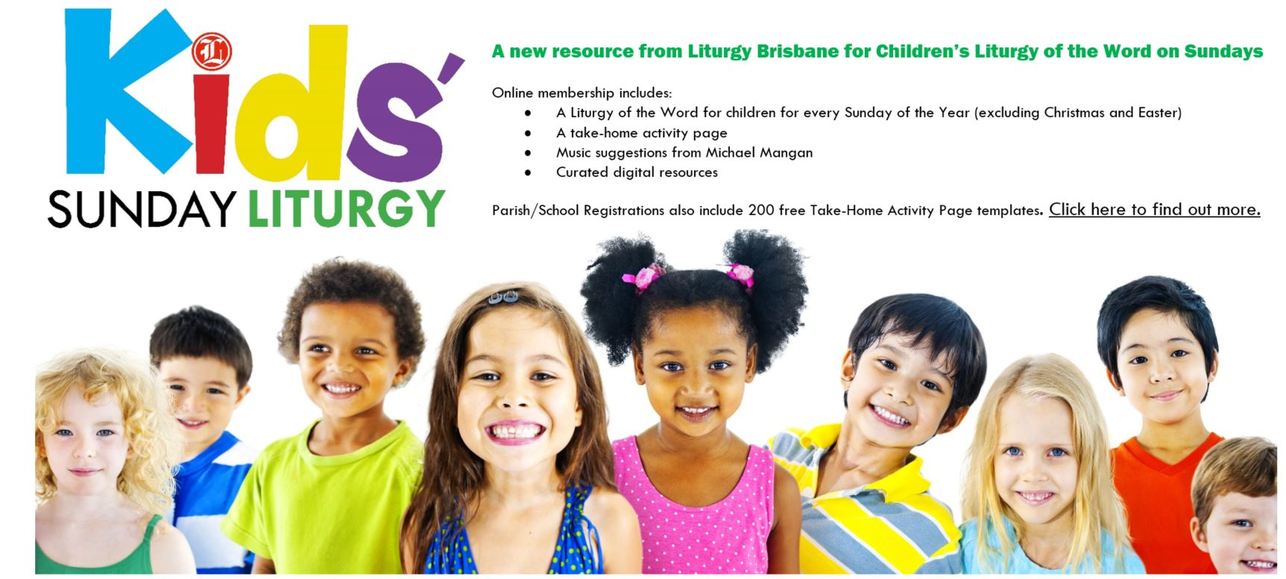|
In this edition:
|
8th January, 2018.
The Year of YouthWelcome to this fortnight's edition of LITed: Liturgical Education News.
Last month the Australian Church's Year of Youth opened in Sydney. By all accounts it was an extraordinary event (and extraordinarily expensive). Looking ahead, the upcoming Synod in Rome will focus on Youth, with some suggesting it may pave the way for significant change. In this edition of LITed, we look at what to expect from the Year of Youth and how parishes can capitalise on what is offered. Our list of recommended resources and curated reading from other publications appears below. |
Feature Articles
What to expect from a Year for YouthThe Year of Youth should be a big year for the Australian Church. Full of challenging questions and hopefully, courageous answers. What do liturgists need to know and plan for?
|
Have youth festivals had their day?There is no argument that youth festivals are spectacular events, but do they actually achieve long-term evangelisation of young people? Could including parishes be the answer?
|
Liturgy and Today's YouthAn event that links into the deepest level of unsayable experiences can have the force of a bolt of lightning, and is memorable even when far less intense.
|
The Cross of Christ invites us also to allow ourselves to be smitten by his love.
Pope Francis to those gathered at World Youth Day in Rio
Recommended Resources
The Catholic CollectiveAn introduction to the collaboration of the youth initiatives in the Archdiocese of Brisbane.
|
ACBC Office for Youth: Year of YouthThe website from the ACBC Youth Office has the over-arching aims and resource for YOY.
|
Film: Youth and the local ChurchA short film produced by the Archdiocese of Brisbane. A pithy and challenging statement.
|
|
|
The Year of YouthWatch the promotional video from the Australian Catholic Bishops Conference. Created last year, it captures the intention and purpose of the Year of Youth. It may be useful for some parishes to include before Eucharistic celebrations or as part of the parish website.
|
Other Publications
Plugging teens into faithIf you can make it past the conservative American masthead, this article has some reasonable recommendations for working with young people.
|
2018 SynodPope Francis will hold a Bishops' Synod later this year in Rome which will focus on 'Young People, the Faith and Vocational Discernment'.
|
Onwards to 1998?In the December issue of Liturgy News, Fr Tom Elich's editorial explores Pope Francis' recent changes to Canon Law.
|
In the news
Liturgy Lines by Elizabeth Harrington
Age Requirement for Readers
At a school Mass, it would be fitting for a 14-year-old student who has the required skills and has done the necessary practice to serve as a Minister of the Word. On the other hand, it would be quite inappropriate for someone of the same age to be asked to read the scriptures at the funeral liturgy of a close friend or family member.
The Introduction to the Lectionary for Mass does not stipulate a minimum age for Ministers of the Word, but rather spells out the skills and formation that are required for this ministry.
It states that those who exercise the ministry of reader must be “truly qualified and carefully prepared”. They require biblical formation in order to be able to “perceive by the light of faith the central point of the revealed message”. They need liturgical formation so that they are familiar with the structure of the Liturgy of the Word and its connection with the Liturgy of the Eucharist. Finally, technical preparation is needed to make the readers more skilled in the art of reading publicly. (#55)
This high standard regarding qualifications and preparation is a lot to expect of anyone, especially a teenager, but it is certainly not impossible for a young person who is faith-filled and dedicated. Suitability as a Minister of the Word is not so much a matter of age as it is of skill and commitment.
All liturgical ministers need to bear witness to Christ both in their service of the liturgical assembly at Mass on Sunday and in their lives during the week. On those grounds, a young person whose lifestyle is openly contrary to the Gospel should not serve as a Minister of the Word. But neither should the successful business woman who underpays her employees, or the high-flying executive who abuses his wife.
Ministers of the Word will proclaim the scriptures with integrity and authenticity if they are people of the word as well as Ministers of the Word, that is, if they are shaped and guided in daily life by the scriptures they proclaim. A young person who believes in the word that he or she is proclaiming and is serious about preparing well for their role will be a more effective Minister of the Word than an older person who never reads the bible during the week.
Young people who have the necessary faith, skill and interest to be Ministers of the Word can be helped into the role through a mentoring program in the parish whereby they are allocated to an experienced reader who assists them with preparation for and carrying out of their ministry. The young reader at a youth Mass who had to be helped out by the celebrant should never have been left stranded as she was.
When it comes to questions regarding age, dress, style of proclamation, gestures and so on for Ministers of the Word, the key consideration is that the age, dress and manner of the reader must never draw attention to itself and away from the word of Christ that is being proclaimed.
At a school Mass, it would be fitting for a 14-year-old student who has the required skills and has done the necessary practice to serve as a Minister of the Word. On the other hand, it would be quite inappropriate for someone of the same age to be asked to read the scriptures at the funeral liturgy of a close friend or family member.
The Introduction to the Lectionary for Mass does not stipulate a minimum age for Ministers of the Word, but rather spells out the skills and formation that are required for this ministry.
It states that those who exercise the ministry of reader must be “truly qualified and carefully prepared”. They require biblical formation in order to be able to “perceive by the light of faith the central point of the revealed message”. They need liturgical formation so that they are familiar with the structure of the Liturgy of the Word and its connection with the Liturgy of the Eucharist. Finally, technical preparation is needed to make the readers more skilled in the art of reading publicly. (#55)
This high standard regarding qualifications and preparation is a lot to expect of anyone, especially a teenager, but it is certainly not impossible for a young person who is faith-filled and dedicated. Suitability as a Minister of the Word is not so much a matter of age as it is of skill and commitment.
All liturgical ministers need to bear witness to Christ both in their service of the liturgical assembly at Mass on Sunday and in their lives during the week. On those grounds, a young person whose lifestyle is openly contrary to the Gospel should not serve as a Minister of the Word. But neither should the successful business woman who underpays her employees, or the high-flying executive who abuses his wife.
Ministers of the Word will proclaim the scriptures with integrity and authenticity if they are people of the word as well as Ministers of the Word, that is, if they are shaped and guided in daily life by the scriptures they proclaim. A young person who believes in the word that he or she is proclaiming and is serious about preparing well for their role will be a more effective Minister of the Word than an older person who never reads the bible during the week.
Young people who have the necessary faith, skill and interest to be Ministers of the Word can be helped into the role through a mentoring program in the parish whereby they are allocated to an experienced reader who assists them with preparation for and carrying out of their ministry. The young reader at a youth Mass who had to be helped out by the celebrant should never have been left stranded as she was.
When it comes to questions regarding age, dress, style of proclamation, gestures and so on for Ministers of the Word, the key consideration is that the age, dress and manner of the reader must never draw attention to itself and away from the word of Christ that is being proclaimed.
Contact Us |
Images used under Creative Commons Attribution 2.0. Full terms at http://creativecommons.org/licenses/by/2.0.
Other images from Unsplash. 2017. Used under license. Full terms and conditions.
Other images from Unsplash. 2017. Used under license. Full terms and conditions.













